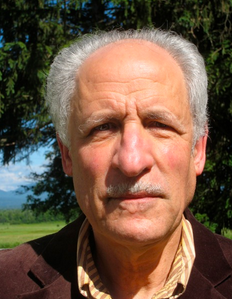Eric Zuesse
The leader of the Ukrainian separatists says that their efforts to get Russia's President Vladimir Putin to accept their territory as being a part of Russia have been firmly rejected by Putin's Government; and, so, "We will build our own country." (This important statement from the rebel leader Andrei Purgin on Wednesday, September 17th, was inconspicuously buried halfway through an AP news story that focused instead on "East Ukraine Casualties." It's common for propagandistic news reports, such as characterize the U.S. media, to bury what's important in the news story, and not even to headline that crucial information. So: this information was buried, and was not headlined.)
Russia's Government has thus made clear that it is not seeking to add to its territory. While Russia has accepted the approximately million refugees who have fled to Russia from Ukraine's civil war, Russia does not want any part of Ukraine's territory. Crimea was traditionally part of Russia, throughout the period 1783-1954, until the leader of the Soviet Union gifted Crimea to Ukraine (the nation that was called the Ukrainian Soviet Socialist Republic) in 1954, but the residents of Crimea never accepted that, and they overwhelmingly considered themselves still to be Russians. Furthermore, the Russian Navy's lease on the Crimean port of Sebastopol for its Black Sea Fleet extended till 2042, and the February 2014 coup-installed Ukrainian Government wanted to cancel it, which threatened crucial Russian national defense. Furthermore, many of those new Ukrainian leaders wanted a nuclear war against Russia. So, Putin accepted Crimea back into Russia, but he will not admit more than that as being added to Russian territory.
Crimea is viewed as not being an addition to Russia, but instead as voluntarily rejoining Russia, irrespective of the new Ukrainian Government's campaign to eliminate ethnic Russians from Ukraine's southeast. No other part of post-1954 Ukraine had previously been part of Russia, and this includes the southeastern portion of Ukraine, whose residents ethnically descended from Russian immigrants who had settled there.
Consequently, the ethnic-cleansing campaign that has been going on by the new, Obama-installed, Ukrainian Government, against the residents in Ukraine's southeast, will continue, at least until the surviving residents there become a small enough proportion of the Ukrainian national electorate so that a nationwide Ukrainian election -- which hasn't been held in Ukraine since the February 2014 coup -- will choose leaders who are acceptable to the U.S. Government, which planned and financed that February coup. Only by killing and driving out enough of those people -- the ones in the areas that overwhelmingly voted for the man whom Obama overthrew -- will become possible a democratic Ukraine that allies itself with the U.S.
President Putin and President Obama have regularly been in direct contact with one-another ever since Obama's coup occurred in February. Perhaps Putin's declining to accept Ukrainian territory into Russia was part of an agreement between the two leaders in which Obama is, for his part, declining the urgings from congressional Republicans and conservative Democrats for the U.S. to provide weapons to the Ukrainian military to expedite their ethnic cleansing campaign.
----------
Investigative historian Eric Zuesse is the author, most recently, of They're Not Even Close: The Democratic vs. Republican Economic Records, 1910-2010, and of CHRIST'S VENTRILOQUISTS: The Event that Created Christianity.




